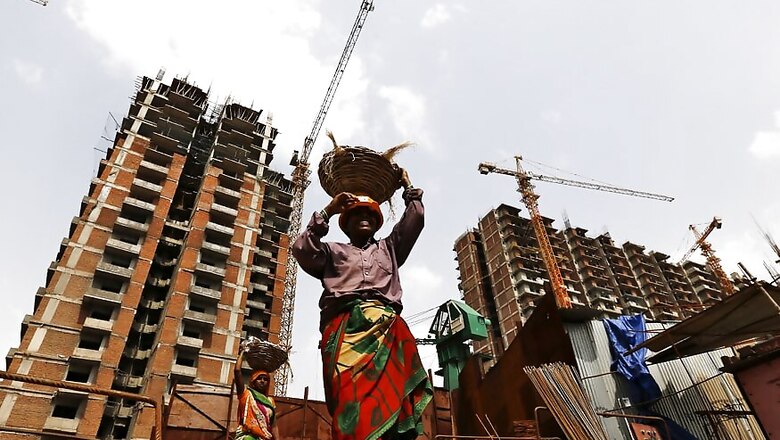
views
Batting for an overhaul of the wage system in India, the Economic Survey 2019 addressed India’s problem of complex minimum wages in the country and pointed out how a systemic bias in the system was behind unequal pay based on gender.
“Over the last 70 years, the minimum wage system in India has expanded and has become complex. There are nearly 429 scheduled employments and 1,915 scheduled job categories for unskilled workers. This massive expansion in job categories and wage rates has led to major variations not only across states but also within states,” the economic survey noted this, explaining where the complexities arise from.
The survey which was tabled in the Parliament on Thursday further pointed to the fact that “one in every three wage workers in India is not protected by the minimum wage law.”
The survey has proposed that minimum wages should be fixed for four categories namely unskilled, semi-skilled, skilled and highly skilled based on the geographical region, adding that it should cover all workers, irrespective of any wage ceilings. “A simple, coherent and enforceable Minimum Wage System should be designed with the aid of technology as minimum wages push wages up and reduce wage inequality without significantly affecting employment.”
The document also noted that the main justification for persisting with different levels of minimum wages across states is that they reflect different levels of economic development.
The survey also illustrates an example to portray how the law has led to gender discrimination in terms of salaries. “While the Minimum Wages Act does not discriminate between women and men, an analysis of minimum wages for different occupations shows persistence of systematic bias,” noted the document.
For instance, the document shows, women dominate in the category of domestic workers while men dominate in the category of security guards.
“While both these occupations fall within the category of unskilled workers, the minimum wage rate for domestic workers within a state is consistently lower than that for the minimum wage rates for security guard. Furthermore, the differences in their minimum wage rates are quite large,” said the economic survey of 2019.
While batting for a complete overhaul of the minimum wage system the document said, “an effective minimum wage policy is a potential tool not only for the protection of low-paid workers but is also an inclusive mechanism for more resilient and sustainable economic development.”














Comments
0 comment